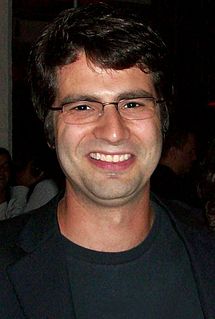A Quote by John Bunyan
The Author's Way of sending forth his Second Part of the Pilgrim. Some things are of that nature as to make One's fancy chuckle, while his heart doth ache.
Related Quotes
Here when the labouring fish does at the foot arrive, And finds that by his strength but vainly he doth strive; His tail takes in his teeth, and bending like a bow, That's to the compass drawn, aloft himself doth throw: Then springing at his height, as doth a little wand, That, bended end to end, and flerted from the hand, Far off itself doth cast. so does the salmon vaut. And if at first he fail, his second sommersault He instantly assays and from his nimble ring, Still yarking never leaves, Until himself he fling Above the streamful top of the surrounded heap.
The stately heavens which glory doth array, are mirrors of God's admirable might; there, whence forth spreads the night, forth springs the day. He fix'd the fountains of this temporal light, where stately stars enstall'd, some stand, some stray, all sparks of his great power (though small) yet bright. By what none utter can, no, not conceive. All of his greatness, shadows may perceive.
Such is the effect of the grace of God in the heart of a pilgrim; while on one hand he sees the propensity of his evil nature to every sin which has been committed by others, and is humbled; he also confesses, that, by no power of his own, is he preserved, but ever gives the glory to the God of all grace, by whose power alone he is kept from falling.
Nature never rhymes her children, nor makes two men alike. When we see a great man, we fancy a resemblance to some historical person, and predict the sequel of his character and fortune, a result which he is sure to disappoint. None will ever solve the problem of his character according to our prejudice, but only in his high unprecedented way.
Men are impatient, and for precipitating things; but the Author of Nature appears deliberate throughout His operations, accomplishing His natural ends by slow, successive steps. And there is a plan of things beforehand laid out, which, from the nature of it, requires various systems of means, as well as length of time, in order to the carrying on its several parts into execution.
He slides his hand over my cheek, one finger anchored behind my ear. Then he tilts his head down and kisses me, sending a warm ache through my body. I wrap my hands around his arm, holding him there as long as I can. When he touches me, the hollowed-out feeling in my chest and stomach is not as noticeable.
It's interesting that some people reading the comics see Scott Pilgrim as a blank slate in that they like to imagine themselves as Scott Pilgrim, so it's interesting that there are two kind of schools of thought about the character. One is, like, Scott Pilgrim is awesome. The second is Scott Pilgrim believes himself to be awesome.




































